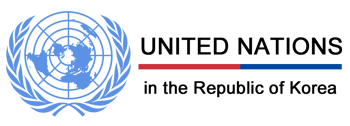
Korea and the United Nations Development Programme (UNDP) celebrated 50 years of partnership in Seoul on 14 November, 2016, in an event that consisted of a photo exhibition and a gala event under the title “UNDP-Korea at 50: Retrospective and Prospect.” Going beyond celebrating UNDP’s 50th anniversary, the event was also a celebration of the longstanding partnership between UNDP and Korea, and commemoration of the development progress made by the Government and people of Korea in the past five decades.
The photo exhibition, inaugurated at Seoul City Hall by Mr. Haoliang Xu, Assistant Secretary-General of the United Nations and Assistant Administration of UNDP, was a retrospective of the UNDP-Korea partnership since 1966, commemorating UNDP’s past contributions to Korea’s development in areas ranging from rural development to water management and vocational training. The exhibition featured some 30 photos, drawing mainly from the UN Multimedia Collection and the Korean National and Presidential Archives, focusing on the 1960s and 1970s which were the heyday of UNDP’s presence in Korea. A photobook publication was also launched on this occasion.
“UNDP was instrumental to Korea’s economic and social growth in a number of sectors, including agriculture and fishing, water management, industry, communications and business support services, among others. Five decades together is a long period, and these examples are but a few of the significant areas where UNDP has provided support and achieved impact. And the legacy of these projects lives on in all aspects of Korean society today,” said Mr. Balazs Horvath, Director of the UNDP Seoul Policy Centre (USPC) in his welcome remarks at the photo exhibition. “The key to our successful partnership lies in the fact that it has been a long term engagement and one that has evolved over time,” he added.
The ensuing gala event was a forward-looking celebration of UNDP’s new partnership with Korea, particularly USPC’s ongoing Development Solutions Partnership work to share Korea’s development experiences and lessons learnt with other developing countries.
UNDP has been working in Korea since its establishment in 1966, and supported the country’s economic and social development with more than 270 projects in some 20 areas. Korea achieved the transition from one of the poorest countries to a member of the Development Assistance Committee of the Organization for Economic Co-operation and Development (OECD-DAC) just in a few decades, and the so-called ‘Miracle on the Han River’ is well known around the world. The UNDP Country Office closed its doors in 2009 upon Korea’s reaching official donor status and re-opened as the UNDP Seoul Policy Centre in charge of sharing Korea’s success stories with today’s developing world.
“Many countries around the world are now interested in learning from Korea’s experience and lessons learnt,” Mr. Haoliang Xu said in his opening remarks. “USPC is strategically placed to work with Korea in supporting the 2030 agenda across the globe by sharing Korea’s knowledge, historical policy lessons and technical expertise,” he added.
The Deputy Minister of the Ministry of Foreign Affairs of Korea, Mr. Jong-moon Choi, also noted how UNDP’s support in Korea played a very important role in Korea’s industrialization as well as social development process in ways that supported the national efforts while always injecting progressive ideas for a holistic development perspective. “MOFA will continue to work closely with UNDP for the implementation of the 2030 Agenda for sustainable development, both at home and abroad,” he said.
Earlier this year, the Republic of Korea pledged an additional $3 million to UNDP, supporting its work in democratic governance for peaceful and inclusive societies, as well as providing $8 million in core funding for 2016 to UNDP – a 14% increase from 2015. The two parties also signed an agreement on the RoK-UNDP SDG Trust Fund, which aims to build on the success of the RoK-UNDP MDG Trust Fund (2011-2016).
Mr. Kyung-ho Park, Vice Chairperson of the Anti-Corruption & Civil Rights Commission, and Mr. In-Seok Koh, Assistant Mayor of Seoul, also explained in their speeches how they value the concrete and programmatic partnership with USPC, citing the ongoing work to share their innovative policy tools in Vietnam, Ukraine, Thailand, Jordan, and Uganda.
The two events, co-organized by the Korean Ministry of Foreign Affairs and sponsored by the Seoul Metropolitan Government, attracted more than 150 representatives from embassies, international organizations, governments, academia, civil society as well as former UNDP staff members.
As the photo exhibition continues until 23 November, 2016, it is expected to contribute to building the Korean public’s awareness of the role and work of UNDP in the past, present and future.
Download the UNDP-Korea at 50: Retrospect and Prospect Photo Book
